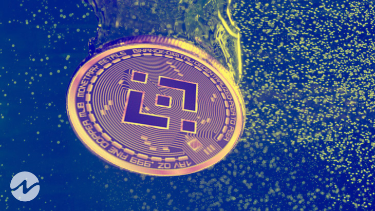Even if BSC achieves its aim of 100 million BNB, the burns will continue.
The price of BNB rises when the quantity of the coin is reduced.
A real-time burning mechanism was introduced in October 2021 by the Binance Evolution Protocol (BEP-95), making BNB’s tokenomics more dynamic. The BEP-95 network burns a predetermined percentage of the gas costs collected by validators for each block.
BSC’s governance processes decide the actual ratio. Therefore, even if BSC achieves its aim of 100 million BNB, the burns will continue.
Coin Burning Effects
The price of BNB rises when the quantity of the coin is reduced. Therefore, Delegators and validators of BNB may not get as many BNB tokens from the BEP as before. However, if prices rise, the fiat value may increase, cancelling out any decrease in coin value.
There are two smart contracts in place: the system reward contract and the validator set contract. The first is in charge of holding a total of 100 BNB. If the holding falls below this specified quantity, 1/16 of the gas charge is given to the contract for use in transactions. “cross-chain package subsidies” are paid out of the contract’s funds.
As for the second, it holds the remaining gas expenses. This contract handles gas costs for validators and delegators inside the BSC network. These funds are sent to the Binance Chain, where it is divided among the Binance Chain’s validators.
In August 2021, the Ethereum network introduced EIP-1559, a burning mechanism identical to that provided by Binance. Since the BEP-95 real-time burning upgrade, 64,200 $BNB, valued at around $30,032,850, has been burnt as per the latest announcement by the team.

